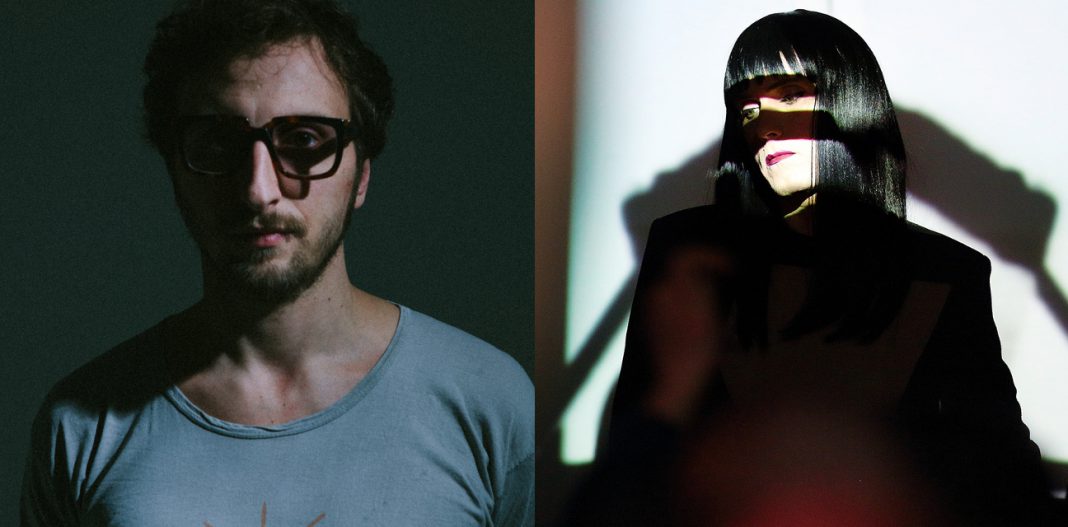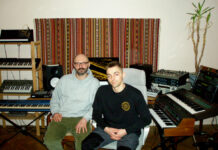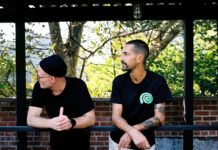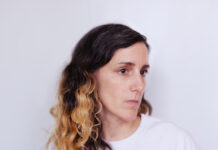Seth, how did you experience Lucy´s studio? Did you instantly feel at home? Or was it an alien space for you, at least in the beginning?
Seth: I have been working solely with a computer for a long time. Lucy has a lot of synths and a lot of stuff you can get your hands on. We talked about general aesthetic ideas. We wanted to get overtones to sing in a certain way. Instead of making melodies we put a system in place that was generating sounds and patterns and just working on it from there.
Lucy: This system could somehow produce quite a variety of music without ever going into something, let’s say melodic in a chromatic way. More like overtonal or microtonal music.
Seth: Also I think we were restraining ourselves from changing too much. When we had some kind of process running I would spend a long time with two or three knobs, just listening to the slow changes between a very few parameters to see what was happening there. It wasn’t drastic changes or sharp cuts.
Lucy: It was just very slowly morphing. I like that about Rrose’s music in general: I don’t know if Seth would agree, but from the outside, your music represents the perfect example of anti-pop-culture. Things are never in your face. No extraordinary explosions. It is subtle, it’s much more mimetic to actual life, where the most important things happen in little shades, in gradual tonalities.
Seth: Or you could say sometimes there are very drastic and catastrophic events in life, but they are caused by a very gradual process over time.
Lucy: Exactly.
Seth: There is a kind of simulation or a kind of attempt to work in that way. It is not as if all you are hearing are gradual things. It is just that things take shape in a way that you don’t necessarily expect, not in a simple relationship. Things are developing on a multilayered basis. The way we perceive them, you might not be aware how you got from one place to another, now that you are somewhere else.
Lucy: If we were doing a movie, we would be talking about the difference between a Hollywood superhero production full of big bangs, explosions and hot chicks and a shot from Tarkovsky, where everything is extremely slow and subtle. You are not even supposed to notice how you got from point A to point B.
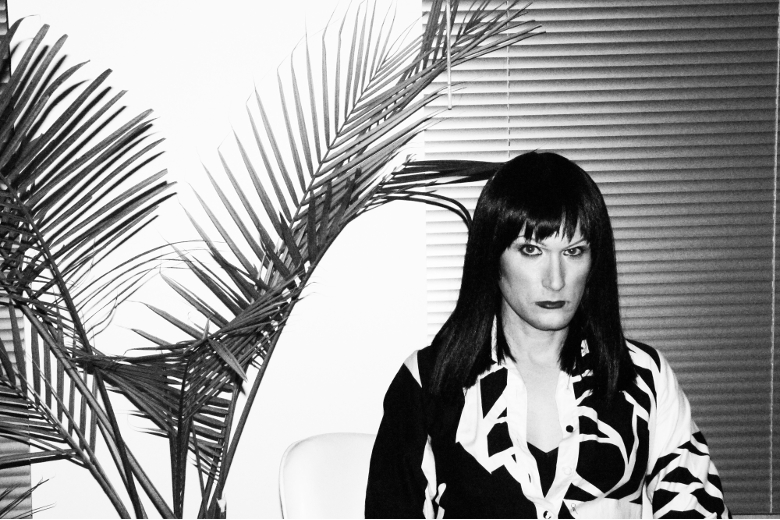
What was the situation you were in when you started producing music? With you Seth, it seemed like you had this group of very talented musicians – Kit Clayton, Twerk, Goeff White, Ben Neville – around you. What did this scene look like? To what kind of clubs and parties would you go?
Seth: That was more than twenty years ago. (laughs) But I think my first formative music making experience was as a radio DJ on a university radio station. Then it was just collecting a few pieces of equipment to experiment with. I started with stuff that was nothing really professional or good. I just found some cheap things to use and went from there. I was in the San Francisco Bay Area for many years and ended up meeting people there. So I was DJing primarily before I was producing, as it often happens. I was involved with a couple of different collectives in San Francisco putting on club nights and other collectives doing one off parties. It was a big culture and a big scene.
In Europe, you and your fellows were seen as a new generation of Techno producers, developing a vanguard version of dance music, creating complex sonic structures using software like Max/MSP. Did you like a new generation with a new approach?
Seth: At the time, it did not feel I was part of something new until a few years later. This is interesting, because this was in 1997, 1998 when I really started making music. At that time, 1993 seemed like so far in the past form 1997. 1992 or 1993 were the early rave days, in 1997 Techno was established and totally different. Now I look back and it´s not just a few years, but an entire generation has passed since I started making music. Now I go and play gigs and sometimes the promoters could be my children.
But the events back then still seem to be significant to the present, compared to stuff that happened in 2007, for example.
Seth: I think things moved much more quickly back then. There was something happening in California and people around the world saw a group. At the time, I was resistant to the idea of grouping us together as some kind of a scene or a movement. I wanted to cherish the individuality of each of us. We did all have our own strengths. But as years passed I actually started to see the links. There was a lot of cross-pollination and a lot of sharing of ideas. Whenever that happens you end up with identifying characteristics that make up a scene or a sound. Later I realized it’s actually a positive thing that happens as a result of community relations.
